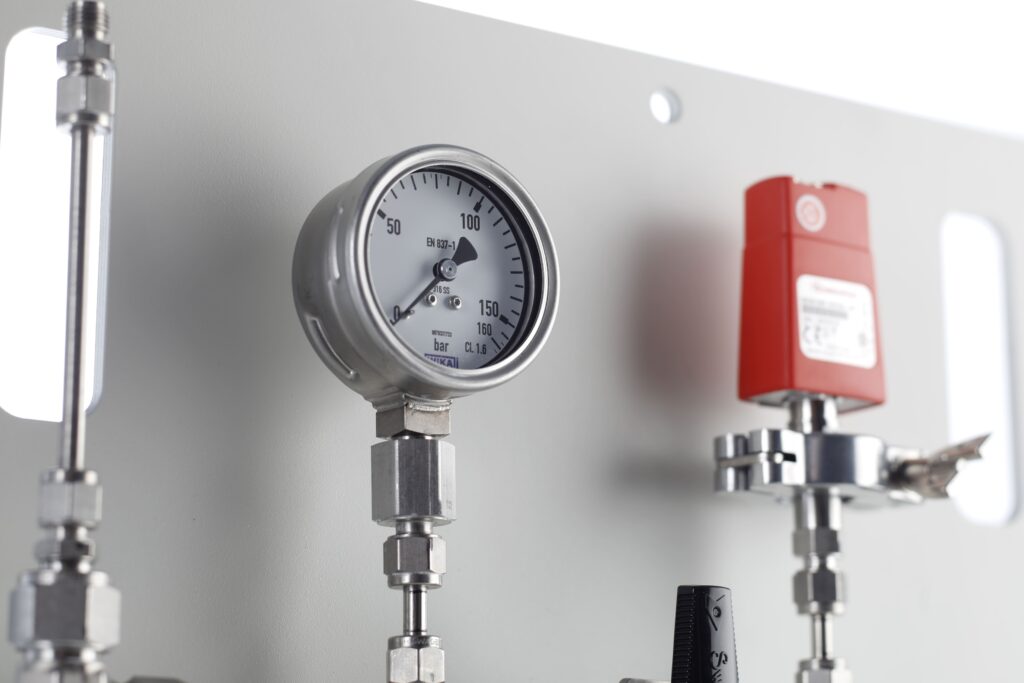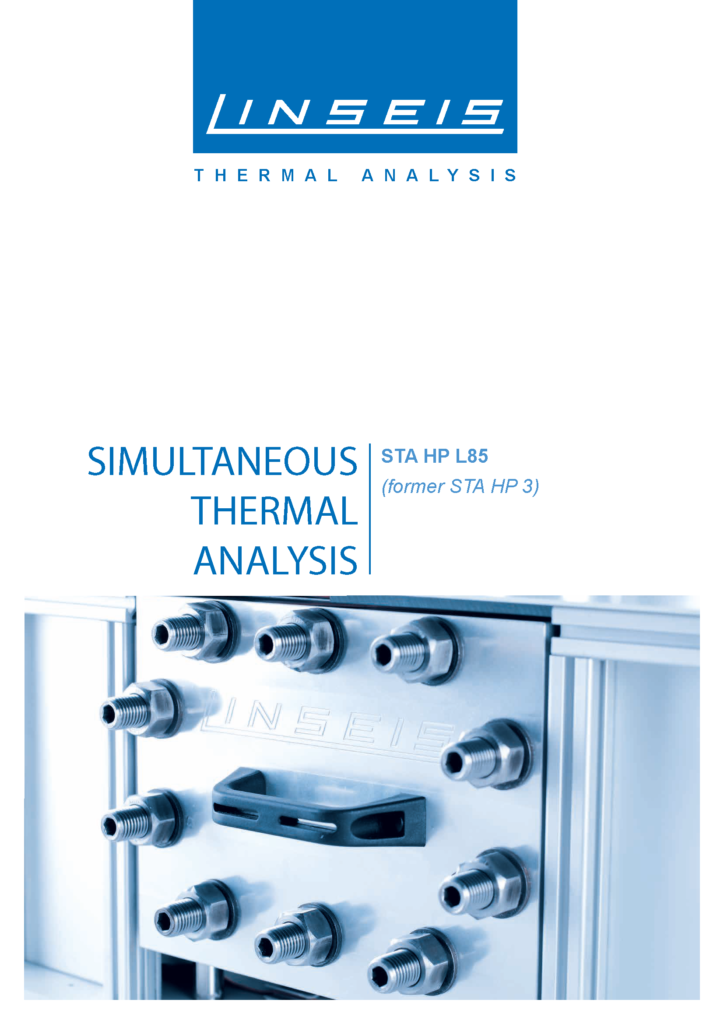Description
To the point
Linseis presents the new table-top device for simultaneous thermal analysis, the STA HP L85.
The STA HP L85 is the result of 25 years of experience in high-pressure thermal analysis.
The superior high-speed micro furnace with a maximum temperature of 1200 ° C, the high-precision “top-loading” microbalance and the true TG-DSC (Thermobalance and Differential Scanning Calorimeter) open up unimagined new measurement possibilities.
The table design, the optional steam generator and various gas dosing systems offer the greatest possible flexibility.
The world’s only combined high-pressure STA (TG-DSC) with top-loading function.
For tests up to 1200 °C and up to 150 bar in reactive or inert atmospheres.
Easily replaceable by the user TGA– or TG-DSC plug-and-play sensors.
You have different options for your experiments: perform only TGA experiments with a volume of up to 1 ml or a combined TGA-DSC analysis with a volume of up to 0.12 or 0.3 ml.
The high-pressure STA (TGA and DSC) enables the combined analysis of weight changes and caloric events such as endothermic or exothermic reactions or phase transitions in one measurement and under the same temperature, gas and pressure conditions.
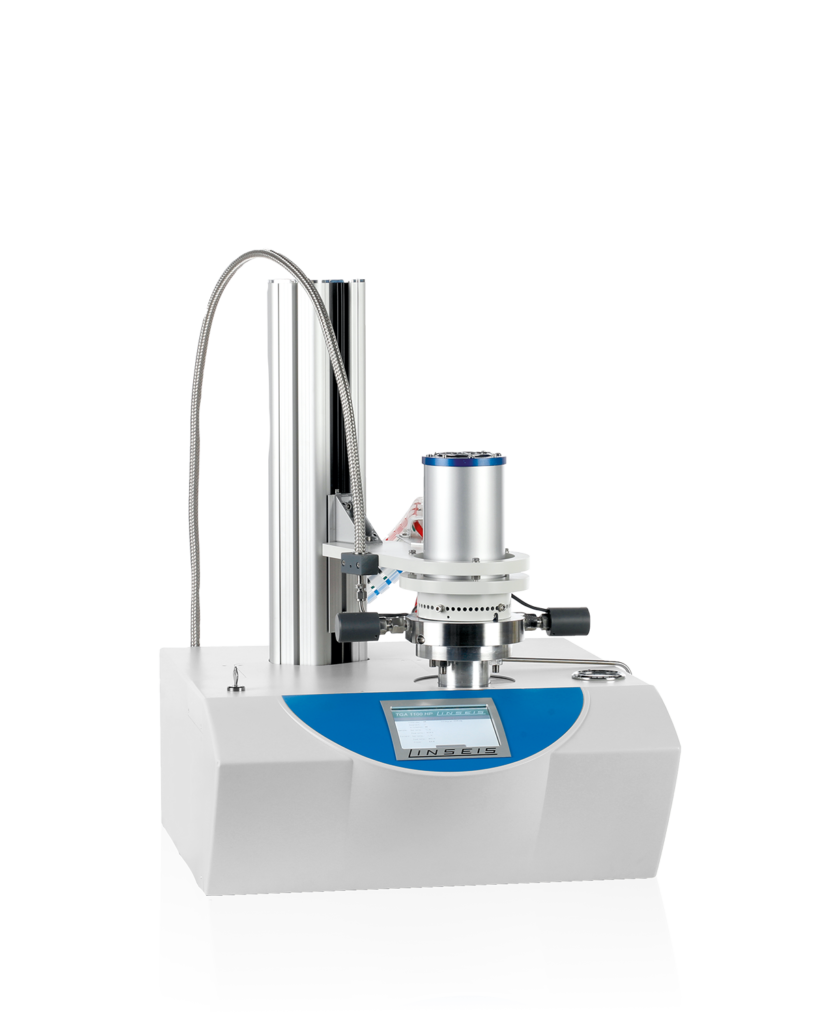
Highly accurate measurement of the sample temperature.
The thermocouple is in direct contact with the sample.
The configuration of the STA HP L85 eliminates temperature measurement errors due to the distance between the sample and the thermocouple (in contrast to a magnetic levitation balance).
The high-speed micro oven enables rapid heating and cooling (up to 300 °C/min controlled heating rate and up to 150 °C/min cooling rate).
Very small oven volume enables fast gas changes.
In addition, the small volume drastically reduces operating costs (gas consumption / energy requirement).
Flexible gas dosing and security design: The gas dosing units can be designed according to your requirements.
The number of gases is freely selectable (3 gases are standard, more or fewer gases on request).
An optional vapor generator and an automatic evacuation and gas safety system for gases such as hydrogen and hydrocarbons are also available.
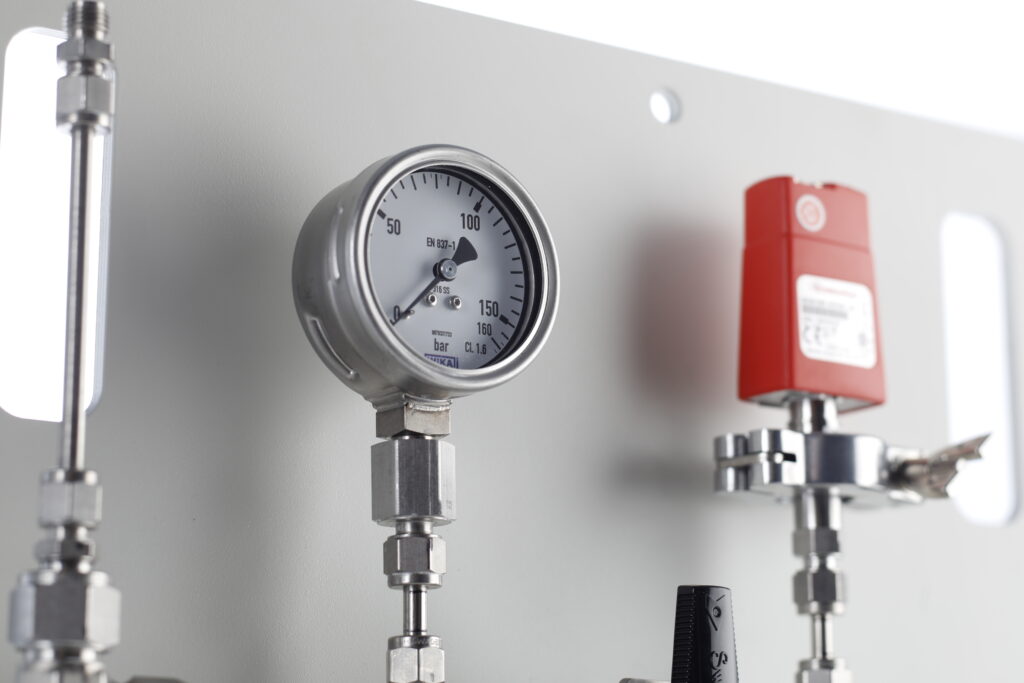
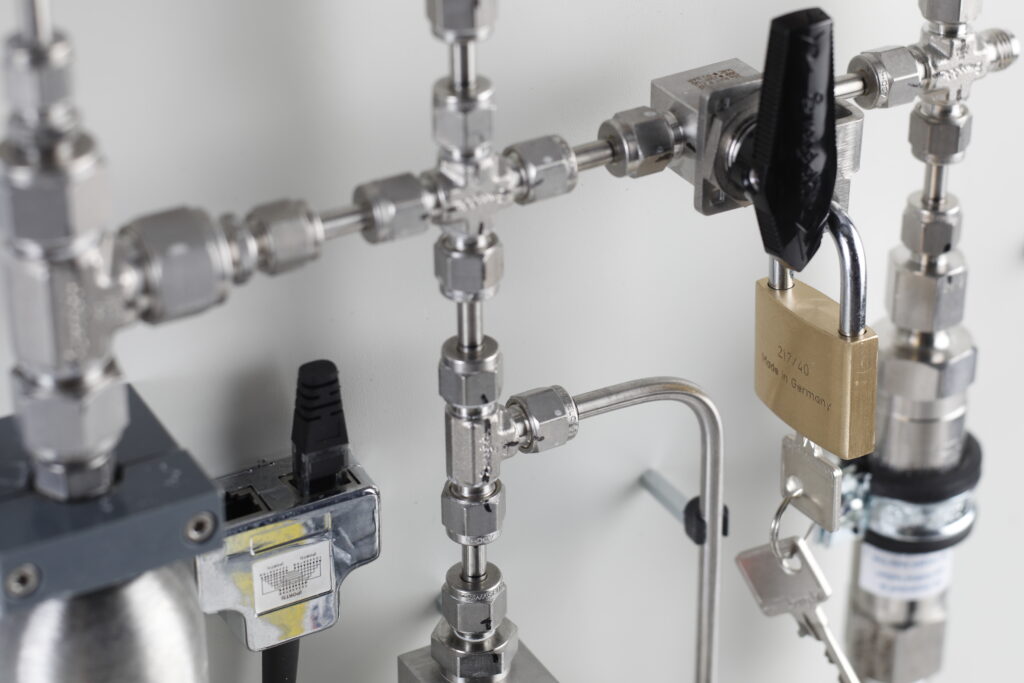
Unique features
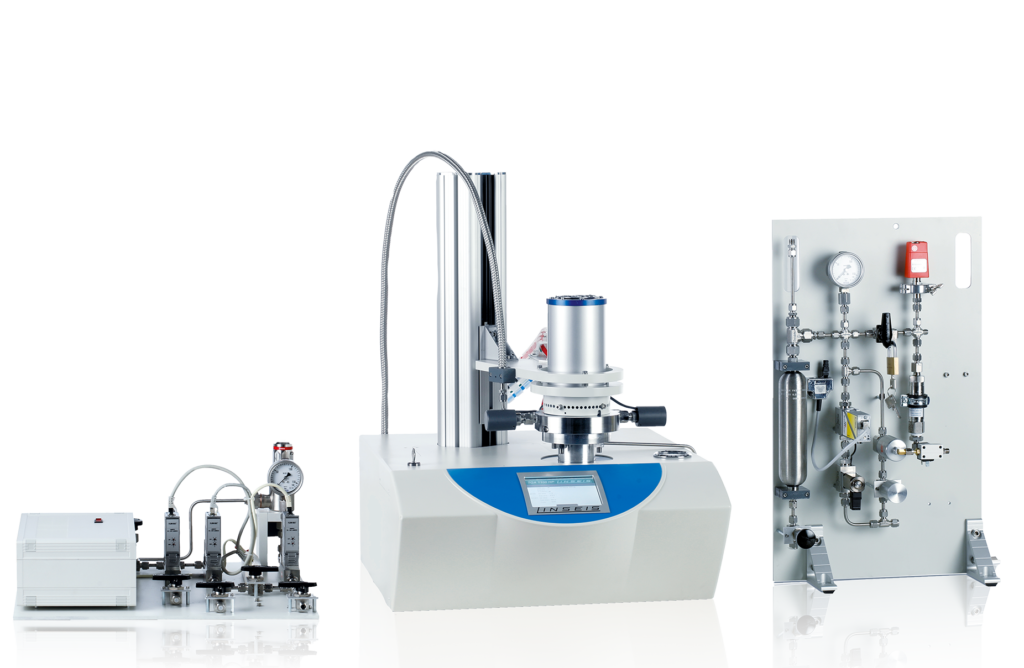
High pressure and
High temperature
measurements
Combined TG-DSC analysis
Flexible gas dosing
Rapid temperature changes
Top-loading function
Questions? We're just a a call away!
+1 (609) 223 2070
+49 (0) 9287/880 0
Our service is available Monday to
Thursday from 8 am to 4 pm
and Friday from 8 am to 12 pm.
We are here for you!
Specifications
MODEL | STA HP L85 |
|---|---|
| Temperature range: | 170°C up to 1200°C / 1600°C / 1800°C |
| Vacuum: | Up to 10-4 mbar |
| Max pressure: | max. 150 bar (customised solutions on request) |
| Temperature precision: | 0.05°C |
TG | ||
|---|---|---|
| Resolution: | 0.1 μg | 0.1 μg |
| Sample weight: | The scales can recognise the weight automatically | The scales can recognise the weight automatically |
| Measuring range: | 25 / 2500 mg | 35000 mg |
DSC | ||
|---|---|---|
| DSC resolution: | 0,3 / 0,4 / 1 µW | 0,3 / 0,4 / 1 µW |
| DSC sensors: | E /K / S / B / C | E /K / S / B / C |
| Calorimetry sensitivity: | ca. 4 / 6 / 17.6 / 22.5 μW | ca. 4 / 6 / 17.6 / 22.5 μW |
DTA | ||
|---|---|---|
| DTA resolution: | 0.03 nV | 0.03 nV |
| Sensitivity: | 1.5 μV / mW | 1.5 μV / mW |
| DTA measuring ranges: | 250 / 2500 μV | 250 / 2500 μV |
Equipment for gas
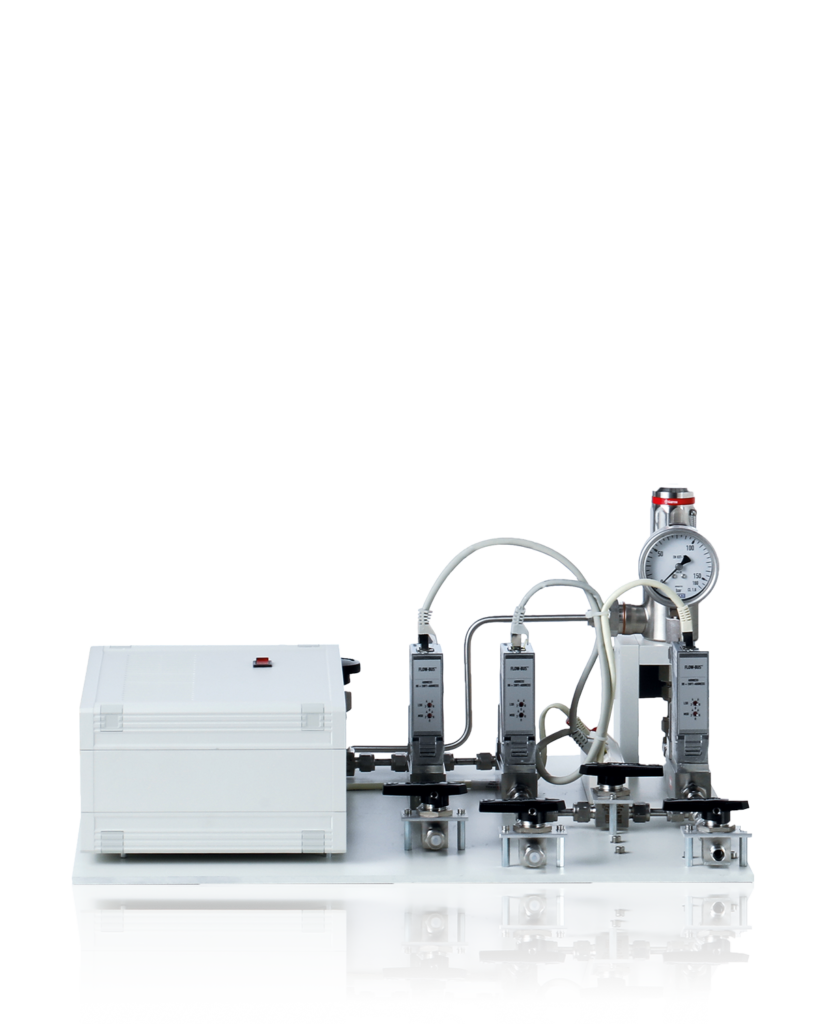
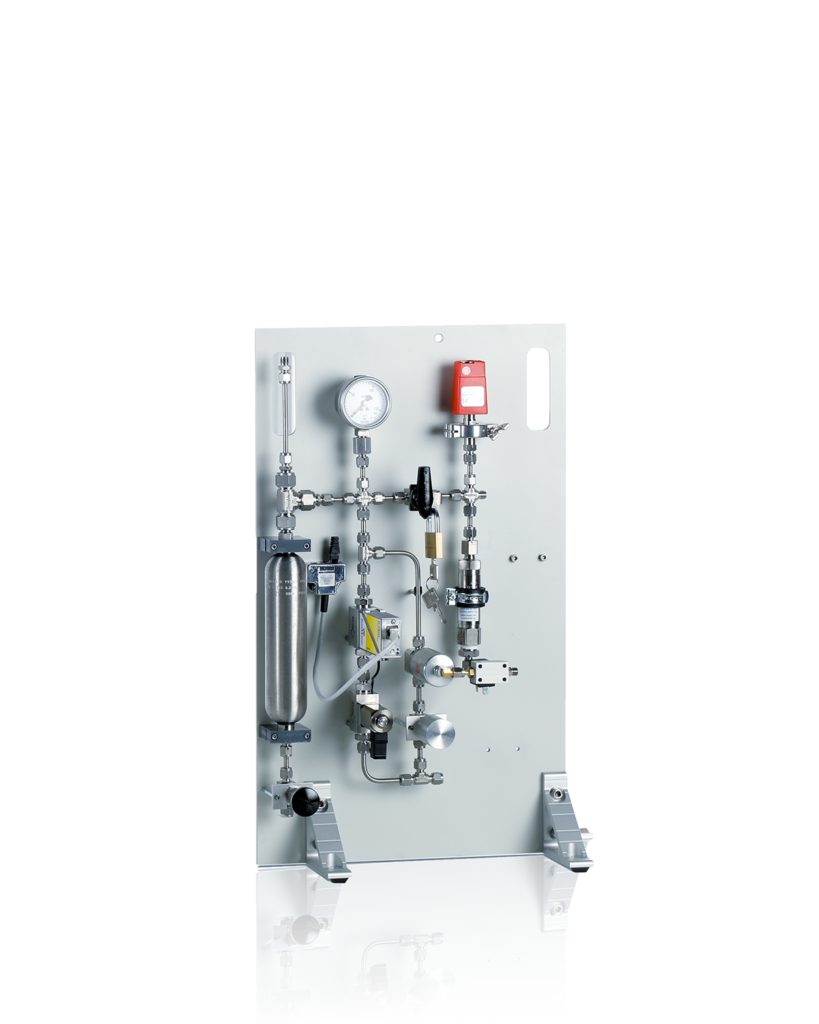
Software
Smart solutions for individual use
The brand new Platinum software significantly improves your workflow, as the intuitive data processing requires only minimal parameter input.
AutoEval provides the user with valuable guidance when evaluating standard processes such as glass transitions or melting points.
Product identification tool for heat libraries: Provides a material database that enables an automatic identification tool for your tested sample.
Device control and/or monitoring via mobile devices gives you control wherever you are.

General functions
- Software packages are compatible with the latest Windows operating system
- Set up menu items
- All specific measurement parameters (user, laboratory, sample, company, etc.)
- Optional password and user levels
- Undo and redo for all steps
- Unlimited number of heating, cooling or isothermal segments
- Multiple language versions such as English, German, French, Spanish, Chinese, Japanese, Russian, etc. (user selectable)
- The evaluation software has a range of functions that enable automated evaluation
- Several different smoothing models
- Complete evaluation history (all steps can be undone)
- Evaluation and data acquisition can be carried out simultaneously
- Data can be corrected with gauge curve and calibration correction
- The data evaluation includes: Software for peak separation, signal correction and smoothing, first and second derivative, curve arithmetic, peak evaluation, glass point evaluation, drift correction.
Zoom / single segment display, overlay of several curves, labeling and drawing tools, copy to clipboard function, several export functions for graphic and data export and a reference-based correction.
Applications
Application: Coal gasification
A well-known application for high-temperature TG-DSC measurements is the investigation of so-called coal gasification or hydrogasification.
This process, in which carbon is heated in a water vapor atmosphere, is used in some catalytic processes, for example to remove carbon monoxide (CO) from exhaust gases and in particular to extract valuable organic compounds from resources such as charcoal or biomass.
The entire process can be described as follows:
Charcoal or the carbon parts of biomass react at higher temperatures (C + H2O CO + H2) with water vapor to form a mixture of carbon monoxide and hydrogen.
This process can be carried out with or without additional oxygen.
If an oxygen-containing atmosphere is used, you will additionally obtain carbon monoxide according to (C + O2 CO2, followed by C + CO2 2 CO).
The third equation shows, regardless of whether you use oxygen or not, the reaction of carbon monoxide with water to get more hydrogen (CO + H2O CO2 + H2).
In the end, you get a mixture of carbon monoxide and hydrogen.
These two gases are involved in chemical equilibria, and therefore it is sometimes also interesting to know how much pressure you have in your system, as the pressure determines which side of the equation the equilibrium is on.
After all, the purpose of coal gasification is to produce methanol and methane from the two resulting gases carbon monoxide and hydrogen (CO + 2 H2 CH3OH; CH3OH + H2 CH4).
This means that you can use this process to go from any type of carbon to the basic building block of almost all organic compounds (pharmaceuticals, polymers, oils, waxes, fatty acids, organic acids, etc.).

Well informed
